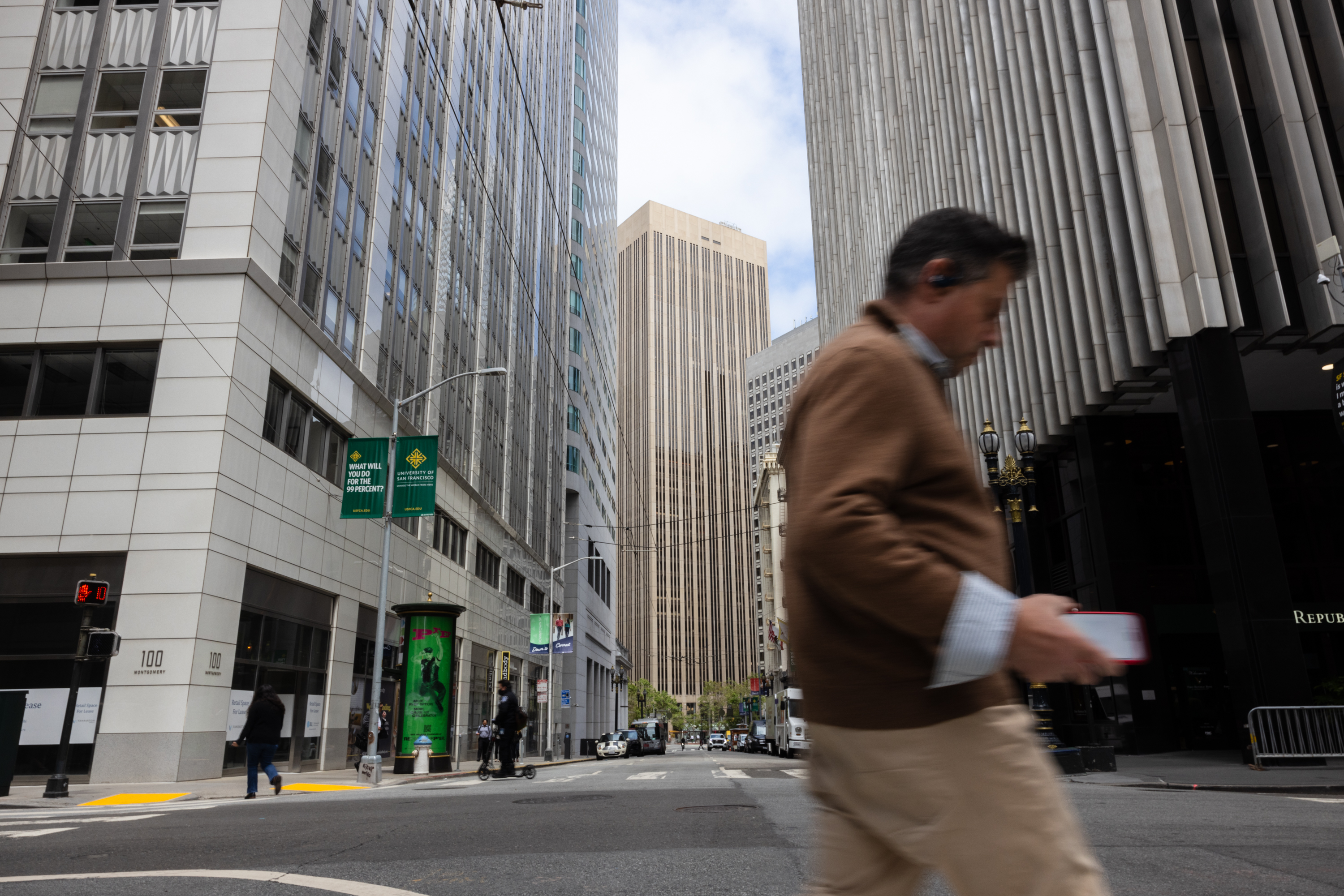Major companies have a laundry list of reasons not to do business in San Francisco, chief among them an unusually high and ever-changing tax burden that local officials are attempting to untangle in the face of declining revenue and a floundering Downtown.
That’s one of the findings in a report from the San Francisco Controller’s Office meant to analyze the impact of remote work and declining commercial property values on the city’s tax base.
A hypothetical tech company with $30 billion in sales and 10,000 local employees in San Francisco would pay 20 times more in local business taxes than if it were located in Mountain View, 200 times more than in San Jose and 1,300 times more than in Sunnyvale.
“The City, which started the decade with the highest business tax burden of any city in California, further raised that burden with several rate increases and new taxes,” said the report, which was written in response to a letter of inquiry from Supervisor Rafael Mandelman.
The report found that compared to past years, a greater portion of San Francisco’s tax revenue is based on volatile sources of funding. It further concluded that remote work has had an immediate and direct impact on tax collections and that the city’s business tax revenue is increasingly reliant on higher-rate payers, who have more choices than ever to downsize or relocate entirely.
“Our unique vulnerability to a few companies moving their headquarters out of San Francisco demands that we urgently explore new ways to encourage businesses to locate and grow in San Francisco, as well as strategies to make our tax base more resilient,” Mandelman said.
San Francisco’s array of business taxes—which include the Gross Receipts Tax along with newer fees like the Homelessness Gross Receipts Tax and the Commercial Rents Tax—are the city’s second-largest source of revenue after property taxes. Voters also approved an Overpaid Executive Tax meant to target companies with large pay gaps between top executives and rank-and-file workers.
The complicated tangle of taxes and fees created negative incentives for companies during the pandemic, encouraging them to keep employees home in order to save money on tax bills.
“We’ve had a series of vindictive, economically short-sighted, politically motivated tax proposals,” said Wade Rose, the president of business advocacy group Advance SF. “Now, we face a situation where the city does not have a diverse tax base, is facing more volatility and has pretty much priced itself out of the market for large companies to locate here.”
That dynamic has led Mayor London Breed and other local officials to call for an overhaul of the city’s tax structure with an eye toward luring back businesses and reviving Downtown. The controller’s research sets the stage for what is likely to become a tax reform ballot measure for November 2024.
As part of her budget deal with the Board of Supervisors, Breed pushed policies to delay a Gross Receipts Tax increase for certain industries and to provide a temporary discount of the tax for new businesses locating to Downtown. Any major changes to the tax code, however, would require voter approval.
“We know the definition of insanity is doing the same thing and expecting a different result.” Breed said in a May speech unveiling her budget. “Everything can’t just be a tax on the ballot.”
Breed, Mandelman and Board of Supervisors President Aaron Peskin are asking the controller and the treasurer to gather feedback and ideas from stakeholders by the end of the year. A working group will then be formed to write and introduce the ballot measure.
“Our tax laws are intended to be dynamic to reflect changing needs, and these reforms are critical to meet this economic moment,” Peskin said in a statement.
The Gross Receipts Tax is the largest business tax, generating around $800 million annually for the city.
Three industries in the city: information, financial services and professional, scientific and technical services are responsible for nearly 70% of that total, thanks in large part to the decade-plus tech boom that helped fuel record-breaking budgets.
But unfortunately, those three industries were quickest to adopt work-from-home policies during the pandemic. According to data from real estate firm JLL, San Francisco’s office vacancies have spiked more than any city in the country and currently hover at about 30%.
A company’s Gross Receipts Tax is calculated by the proportion of its employees located in San Francisco. The three industries that pay the most in business taxes are have seen this number decline substantially between 2019 and 2021 as office employees turned to remote work, according to the controller’s report.
Barring that shift, those three industries would have owed $484 million more in Gross Receipts Taxes in 2021 than they ended up paying.
But the potential damage from remote work doesn’t stop at business tax collections. A decline in property values and leasing activity negatively affects transfer taxes paid when buildings are sold, as well as commercial rent taxes paid by landlords.
Part of the city’s goal for tax reform is to try and create a system that broadly shares the tax burden and builds greater resiliency.
But the controller found that voter-approved tax initiatives over the past few years had the opposite effect, essentially concentrating payments in the hands of fewer companies in the same industries that have most enthusiastically adopted remote work.
In 2012, San Francisco’s five largest businesses paid 7% of total tax revenue, and the largest 100 paid 34%. In 2022, the five largest companies contributed 24% of all business tax revenue and the largest 100, owed 58% of the total. All told, these companies make up less than 2% of all the city’s taxpaying businesses.
“In this new era of remote work, the City’s business tax base is already eroding,” the report states, noting that overall tax revenue has declined even as new revenue schemes have gone into effect.
